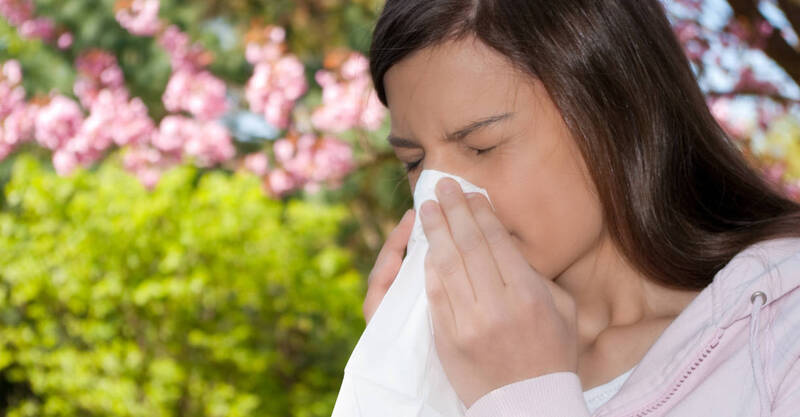Key Points
- Allergies, affecting more than 50 million Americans, are a result of the immune system overreacting to environmental substances called allergens. The most common allergens include pollen, dust mites, pets, food, medications, insect stings, and mold.
- Allergies can be seasonal (occurring during specific seasons due to pollen or airborne mold spores) or perennial (occurring throughout the year due to dust mites, mold, cockroaches, or pet dander).
- Allergic reactions can range from mild symptoms like runny nose, itchy eyes, rashes, and swelling to severe conditions like anaphylaxis, a life-threatening condition that requires immediate medical attention.
- Diagnosis and testing of allergies involve a comprehensive process that includes taking a medical history, performing a physical exam, and conducting various allergy tests like skin prick test, intradermal test, blood tests, challenge tests, and patch tests.
- Treatment options for allergies range from over-the-counter (OTC) antihistamines and nasal steroids for mild allergies to carrying an epinephrine pen (EpiPen) for severe allergies that may result in anaphylaxis. Immunotherapy is another option, which involves increasing doses of allergens to desensitize the patient to the allergen over time. Preventive measures can also help reduce exposure to allergens.
What are Allergies?
Are you always sneezing? Do you have red and itchy eyes? You may be one of the more than 50 million Americans who live with allergies, according to the American College of Allergy, Asthma & Immunology (ACAAI). Allergies occur when the immune system overreacts to something in the environment. The body makes antibodies to try to protect itself from the allergen (the usually harmless substance that caused the reaction). Symptoms follow, such as a runny or stuffy nose, sneezing, and watery, itchy eyes.
What is the difference between seasonal and perennial allergies?
According to the ACAAI, seasonal allergies often occur in spring, summer, and even early fall. They are often caused by things like pollen, weeds, and airborne mold spores.
On the other hand, perennial allergies occur throughout the year, regardless of the season. Triggers may include dust mites, mold, cockroaches, or pet dander.
Allergies May Also Be Known as
- Hypersensitivity
- Seasonal allergies (if they occur seasonally)
- Perennial allergies (if they occur throughout the year)
- Allergic rhinitis
- Hay fever
You may have heard the term anaphylaxis. While many allergies are mild to moderate and can cause a range of symptoms, anaphylaxis is a severe, life-threatening allergic reaction that requires emergency medical attention.
Top 7 Causes of Allergies
When you have an allergic reaction, your immune system is reacting abnormally – or overreacting – to a foreign substance. And, allergies in the United States are increasing: As many as 30 percent of adults and 40 percent of children are affected. This means that many people will experience some sort of allergic reaction in their lifetime, and oftentimes, this condition is mild, such as with typical seasonal allergies.
There are many causes of allergies because different people are sensitive to different things. While many different types of triggers can cause someone to have an allergic reaction, some of the most common allergens, according to the ACAAI include:
1. Pollen
Also called hay fever, an allergy to pollen in the air, especially during spring and summer, can cause people to experience sneezing, coughing, and itchy eyes.
2. Dust mites
The microscopic bugs living in the dust in our homes and schools are called dust mites, and they can cause allergic reactions. Even a clean house can still have dust mites in it.
3. Pets
Some people are allergic to the material that cats and/or dogs shed from their bodies, known as dander. A pet dander allergy can be mild in some individuals, but others might experience shortness of breath or a rash from just being around animals.
4. Food
Some foods can cause a person to experience a mild allergic reaction, while others can be highly dangerous. Peanuts and shellfish are often the cause of severe allergic reactions.
5. Medications
Some people are allergic to drugs such as penicillin, sulfa drugs, or aspirin. Again, sometimes these reactions are mild, but they can be dangerous.
6. Insect Stings
Stings from honeybees, wasps, yellow jackets, hornets, or fire ants can cause allergic reactions, according to the ACAAI.
7. Mold
Mold is a type of fungus. Mold, which often grows in damp environments inside or outside, produces spores. When these spores enter the nose, they cause allergy symptoms. Spores can also get into the lungs, which can trigger asthma symptoms, according to the Asthma and Allergy Foundation of America (AAFA).
Possible Symptoms of Allergies
According to the ACAAI, Allergies occur when your immune system has a strong reaction to something. We call these things allergens. An allergen causes an allergic reaction to occur because the immune system sees it as foreign or dangerous and makes antibodies, which cause allergy symptoms. Most mild or moderate cases of allergies can be managed, but in some dire situations, a person’s allergy to something can be life-threatening when triggered.
1. Stuffy, Runny Nose
Allergies often cause a stuffy or runny nose, similar to a cold symptom. You might feel congested and sneeze frequently when you suffer from a seasonal allergy, especially when you go outside. However, with allergies, the stuffiness lasts for as long as you are exposed to the allergen, rather than just a week or two.
2. Itchy Eyes
Itchy eyes are another strong, telltale sign of seasonal allergies. Some people experience coughing or fatigue, too. When you experience red, itchy, or watery eyes, allergies are usually the culprit.
3. Rashes
Rashes can occur whenever a person who is allergic to something (food, pollen, animal dander, poison ivy, certain antibiotics, etc.) comes into contact with that substance. These rashes can be big or small and can occur anywhere on the body. Rashes caused by allergies are usually red and itchy; sometimes, welts called hives can also occur. One of the most common types of rashes associated with an allergy is eczema, which can occur all over the body and may be red, flaky, and itchy. In some cases, eczema includes bumps filled with oozing fluid. This may mean an infection is present.
4. Swelling
Swelling is another potential external symptom of allergies. This is one of the body’s ways of alerting us that something is wrong. When swelling occurs, the body part looks larger, puffy, and/or shinier, depending on the situation. Different parts of the body can swell based on what and where the allergy is, but sometimes, it can be dangerous. For example, if the throat or tongue begins to swell after a person eats something to which they are allergic, it could make it harder to swallow or even breathe. These symptoms (difficulty breathing, swelling of the face, lips, tongue, or throat) require emergency medical attention.
5. Breathing Problems
A person’s airways can close up if they are extremely allergic to something such as a type of food, a sting from a specific insect, or a medication. Asthma can be a potential symptom of allergies, and sometimes, a person can stop breathing altogether as a result of an allergic reaction. This can become severe enough in some individuals to be life-threatening.
6. Anaphylaxis
Experiencing an allergic reaction can be frightening, so it’s important to know the warning signs of a severe allergic reaction. If you or someone around you is experiencing a severe allergic reaction or anaphylaxis, which is the most severe type of allergic reaction that affects the entire body, dial 911 to have an ambulance take you to the emergency room. According to the AAFA, symptoms may include:
- Chest discomfort or tightness
- Wheezing
- Difficulty breathing
- Difficulty swallowing
- A dangerous drop in blood pressure
- Dizziness
- Heart palpitations
- Nausea and/or vomiting
- Diarrhea
- Flushing or redness of the face
- Swelling of the face, lips, tongue, throat
Allergy Diagnosis and Testing
If you are experiencing allergy symptoms that are not life-threatening, you can see your primary care provider, an allergist, or an urgent care provider. (If you have life-threatening symptoms, call 911 and go to the emergency room right away.)
The AAFA describes how an allergy diagnosis is made. To diagnose allergies, your provider will take a medical history. They will want to know information about your family history as well as any allergies to medications or other previous allergic reactions. They will perform a physical exam, listening to your heartbeat and checking your eyes, ears, nose, throat, and skin. They may also check your lungs with a lung function test and order an X-ray of the lungs and/or sinuses.
There are various types of allergy tests to determine what allergens affect you:
- A skin prick test can test for many types of allergies. Small drops of allergens are placed on the skin, and then the healthcare provider will lightly scratch your skin through the drop. If you are allergic to the substance, symptoms like redness, swelling, itching, and/or hives will occur within 10 to 15 minutes.
- During an intradermal (under the skin) test, a healthcare provider will inject a small amount of allergens into the skin’s outer layer and monitor for reactions. This type of test may be done if your skin prick test is negative, but the healthcare provider still thinks you have an allergy.
- Blood tests may be done. This is also called Specific IgE Blood Testing.
- During a physician-supervised challenge test, usually performed by an allergist, you will inhale or take a small amount of allergen by mouth. Then, you will be monitored for symptoms, including anaphylaxis. This test is usually done for suspected medicine or food allergies.
- A patch test is when a small amount of possible allergen is placed on the skin and covered. After two to four days, your provider will check your reaction.
Questions Your Doctor May Ask About Allergies
- Do you have any known allergies?
- How long have you had an allergy?
- How long have you experienced an allergic reaction?
- What are your symptoms? How severe are they?
- What medications have you tried?
- Have you recently changed soaps or laundry detergent?
- Do you have pets?
- Have you ever experienced dangerous side effects such as swelling of the face or an inability to swallow or breathe?
Can I go to urgent care for allergies?
Yes, if you are experiencing mild allergy symptoms that are not severe or life-threatening, an urgent care facility is well-equipped to diagnose and treat allergies.
However, for severe symptoms, especially when they come on suddenly, you should instead call 911 and go to an emergency room. Symptoms such as hives, difficulty breathing, low blood pressure, or swelling of the face, lips, tongue, or throat, could be signs of anaphylaxis. Anaphylaxis is a severe, life-threatening allergic reaction. Without immediate medical attention, the person could possibly die, so do not wait and see if symptoms improve. Get help right away.
Can urgent care prescribe allergy medicine?
Yes, urgent care healthcare providers can recommend over-the-counter (OTC) medicines or prescribe medication for allergies. There are various oral medications, as well as nasal sprays and eye drops, that can be used to relieve allergy symptoms. And, since asthma and allergies often occur together, your urgent care provider can also address asthma symptoms and prescribe medication if needed.
Possible Allergy Treatment Options
According to the American College of Allergy, Asthma & Immunology, some allergies may not require treatment. For example, if you have mild, occasional symptoms that do not interfere with your daily routine, you may not even feel like you need treatment.
Some people, though, need to take an occasional over-the-counter (OTC) antihistamine to help control allergy symptoms. Others need to take allergy medicine on a more regular basis, especially if allergy symptoms persist or interfere with their quality of life. Some people will even need to carry emergency treatment at all times in case of anaphylaxis.
If you do experience allergies, there are several different treatments available, depending on the allergen and the severity of the reaction. Get an allergy test performed today!
Treating Regular Allergic Reactions
There are many different treatments for seasonal allergies, including over-the-counter and prescription allergy medicine. Antihistamines and nasal steroids are popular. Before using a treatment for the first time, check with your healthcare provider or pharmacist to make sure the medication is safe and appropriate for you, taking into account any medical conditions you have as well as other medications you take. The AAFA outlines common allergy treatments, including:
- Antihistamines: An antihistamine, such as Xyzal (levocetirizine) or Claritin (loratadine), can help with symptoms like a runny nose, sneezing, and watery eyes.
- Nasal steroids: A nasal steroid like Flonase (fluticasone) reduces nasal inflammation, making it easier to breathe. Nasal steroids must be used daily to be most effective—they aren’t “as needed” medicines.
- Topical or oral steroids: Steroid creams or ointments can help with a red, itchy rash. There are various topical steroids available by prescription, such as Kenalog (triamcinolone), or you can try over-the-counter hydrocortisone cream or ointment. Oral steroids, like Medrol (methylprednisolone) or prednisone, are sometimes prescribed for more severe allergic reactions.
- Eye drops: Eye drops such as Pataday (olopatadine) can help with eye symptoms like redness and itching.
- Decongestants: If your nose is stuffy, a decongestant may help. Oral decongestants like Sudafed (pseudoephedrine) decrease blood vessel swelling in the nose. Some antihistamines also contain a decongestant, like Claritin-D. Nasal decongestants like Afrin (oxymetazoline) work locally in the nose to reduce swelling and congestion, but can only be used for a maximum of three days.
- Mast cell stabilizers: Cromolyn, available as eye drops and as a nasal spray called NasalCrom, can be used to prevent and relieve allergy symptoms.
- Epinephrine: People who are at risk for a severe allergic reaction carry an epinephrine pen (often referred to as EpiPen) at all times. It is a life-saving, injectable medication used to treat a severe allergic reaction.
- Immunotherapy: There are two types of immunotherapy. With allergy shots, the patient receives injections of allergens. The dose is increased over time, and the patient becomes less sensitive to the allergen. With sublingual (under the tongue) immunotherapy, or SLIT, the patient is given small doses of an allergen under the tongue to improve tolerance and decrease symptoms. Immunotherapy treatment is done by an allergist.
Treating Anaphylaxis
People who have had a severe reaction to an allergen and are likely to go into or have gone into anaphylactic shock need immediate medical attention. Anaphylaxis, when it occurs, is usually due to a trigger such as insect stings, certain medications like antibiotics, or certain foods like peanuts. Call 911 if someone is experiencing anaphylaxis. Sometimes a life-saving shot with an EpiPen (epinephrine) is necessary, and people who are prone to this condition often carry medication with them in case they experience this reaction.
4 Ways to Prevent Allergies
Once you’re allergic to something, you might never stop being allergic to it. However, it’s also possible for an allergy to go away on its own. Still, there are ways to prevent (or lessen) an allergic reaction, depending on your specific allergen, according to the AAFA.
1. Stay Indoors
If you experience hay fever, stay indoors as much as possible at the time when pollen is at its peak (in the morning and during the spring/summer months). It can also help to make sure you keep your windows closed when you are at home to keep the pollen from getting inside. Keep your car windows (and rooftop, if you have one) closed while driving, too, to keep pollen out.
2. Clean
If you are allergic to dust, it is a good idea to keep your house as clean as possible, to live in a house with hardwood floors, if possible, and to use mite-proof bedding on your pillows and mattress. Also, wash pillows and bedding once weekly in hot water.
3. Avoid Your Allergens
Try to avoid known allergens. For example, make sure your healthcare provider knows your allergies before they prescribe medications. Tell your pharmacist too, so they can catch any potential problems before they occur. Also, avoid the foods that cause you to have reactions, and if you are allergic to pet dander, buy or rescue a pet that doesn’t shed dander.
4. Rinse Your Nose With Saline
Washing out your nose daily with a nasal saline rinse can help reduce allergy symptoms, too. Ask your healthcare provider what other measures you can take to avoid your particular allergens.
Frequently asked questions
What are allergies and how many people are affected by them?
Allergies are reactions caused by the immune system overreacting to certain substances in the environment. They affect over 50 million Americans.What is the difference between seasonal and perennial allergies?
Seasonal allergies are often caused by pollen, weeds, and airborne mold spores and occur during certain seasons. Perennial allergies occur throughout the year and are triggered by things like dust mites, mold, and pet dander.What are the top causes of allergies?
The top causes of allergies are pollen, dust mites, pets, food, medications, insect stings, and mold.What symptoms might someone with an allergy experience?
Symptoms can range from a stuffy, runny nose and itchy eyes to rashes, swelling, and breathing problems. In severe cases, allergies can lead to anaphylaxis, a life-threatening allergic reaction.What are some treatment options for allergies?
There are various treatment options for allergies, including allergy tests, medications, and preventive measures. Urgent care can also play a key role in diagnosing and treating allergies.Is it always necessary to treat allergies?
No, it's not always necessary to treat allergies. However, it's important to manage symptoms effectively and avoid known allergens to prevent severe reactions.How can I prevent allergies?
Preventing allergies often involves avoiding known allergens. Regular cleaning can help reduce allergens like dust mites and mold in the home. Certain medications can also help prevent allergic reactions.What role does urgent care play in allergy treatment?
Urgent care can play a crucial role in diagnosing and treating allergies, especially in cases of severe allergic reactions. They can provide immediate treatment and advice on managing symptoms.
Solv has strict sourcing guidelines and relies on peer-reviewed studies, academic research institutions, and medical associations. We avoid using tertiary references.










